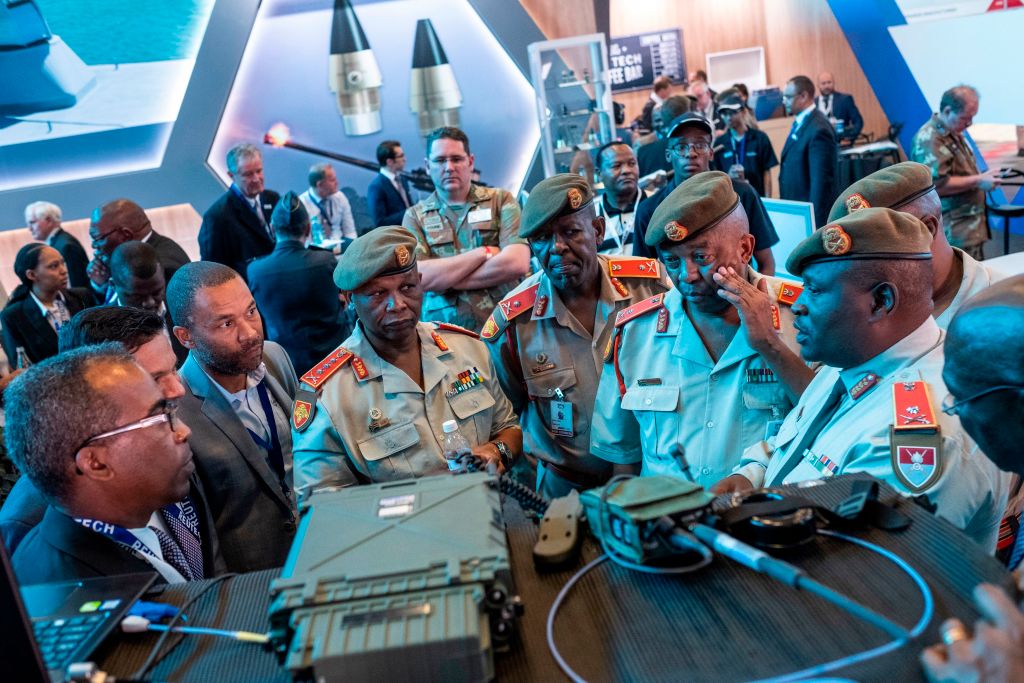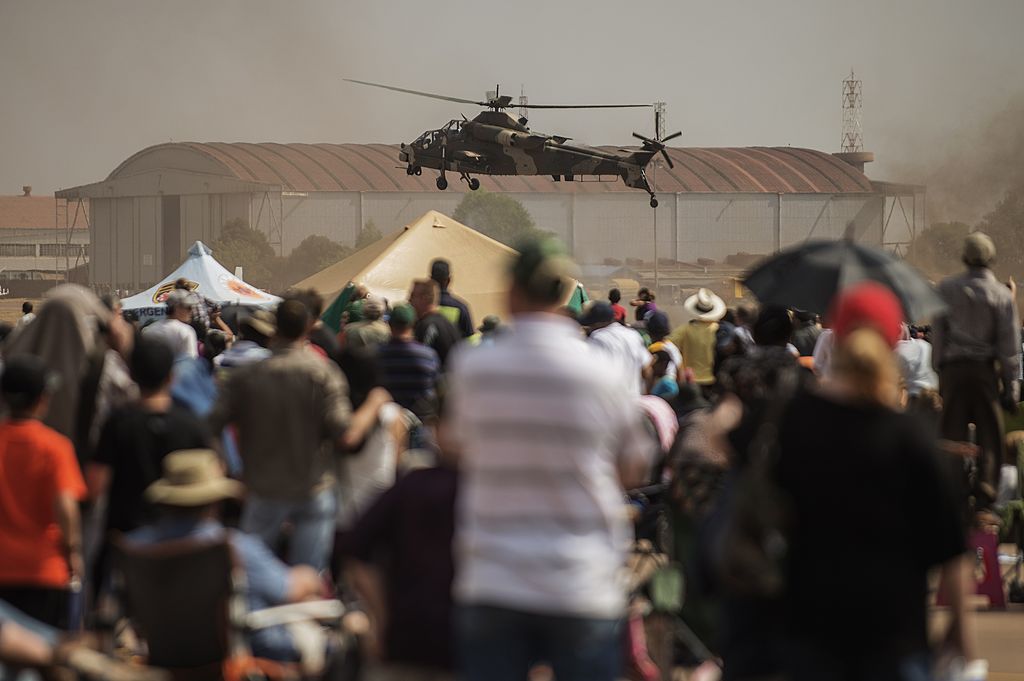ADF STAFF
Thandi Modise recognized the irony of a Gripen jet roaring overhead as she delivered a speech to open the African Aerospace and Defence Expo in Tshwane, South Africa, last September.
Grounded for a year because of budgetary constraints, the Gripen was symbolic of the challenges that affect South Africa’s defense industry and Modise’s staunch optimism that things are turning around.
“It’s one of the things we have been quietly fixing,” she said in an impromptu moment. “For the skeptics who say nothing is working, a lot of things are beginning to work in the defense force. It’s not just the Air Force we are fixing; we are doing it in the Army too.”
As South Africa’s Minister of Defence and Military Veterans, Modise is determined to put a positive spin on South Africa’s military and its defense industry.
Once among the world’s largest and most advanced military industrial complexes, South Africa has watched its prized defense sector recede from the international and continental stage.
It’s a space surrounded by doubters and critics armed with many years’ worth of facts, figures and examples of corruption scandals, short-sighted decisions and negative economic impacts.
“There is no doubt that our defense industry has effectively been decimated,” Jakkie Cilliers, founder of the Pretoria-based Institute for Security Studies, told ADF.

“There are many reasons for this, including greed, incompetence and poor management. But there are also structural reasons that relate to the decline in the defense budget. Without a domestic market it’s difficult to sustain a defense industry.”
Severe budget cuts to the military over the past 10 years have had far-reaching effects on training, readiness, recruitment, morale and equipment maintenance.
With its many economic challenges, South Africa has done little to address the armed forces’ issues and the declining defense industry despite the pleas of experts and officials.
Eeben Barlow, CEO of Executive Outcomes, a private military company founded in South Africa in 1989, said the country’s “emasculated” security capabilities have translated into a loss of technological, scientific, manufacturing, and training knowledge and skills.
“The demise of our defense industry has not only impacted negatively on our economy but also on the dwindling job market,” he wrote in a May 30 op-ed for South African newspaper The Citizen.
“The continent waited expectantly for us to assist them with the equipping of their armed forces, with African solutions for African problems. This presented South Africa with a huge window of opportunity to become a trusted defense manufacturer and supplier to Africa — and it could have contributed massively to our national economy.”
Cilliers blames a lack of vision and clarity on “who should do what.”
South Africa’s dense and opaque security architecture remains an underlying issue with little clear delineation of responsibilities and oversight between various ministries and departments, and between publicly and privately owned companies.
Many critics call for South Africa to return to its status as the continent’s preeminent defense manufacturer and developer.
“Perhaps the most important impact of the decline of the defense industry is that it was one of the few sectors that saw real investment in research and development with large knock-on effects on the manufacturing industry,” Cilliers said.
On that, Modise agreed.
“The technological advances that have become such an integral part of our daily lives — like mobile telephones and the TV decoder — all found their genesis from defense technologies,” she said.
Modise said the defense industry is “an indispensable asset to the broader economy” and noted how the armed forces provides 15,000 direct jobs in 120 companies.
But Cilliers believes South Africa needs to pivot from focusing on conventional defense to preparing and equipping the military for future peace and security challenges — all without any foreseeable increase in the budget.
“Those tasks and challenges are support to the police for specific tasks, border and rural security, participation in peace missions regionally, and emergency response and prevention, such as with floods,” he said.
Modise is holding firmly to her hopeful outlook despite the continued tightening of the government’s checkbook.
“The defense landscape is in a state of rapid and continuous change,” she said. “This creates an opportunity for new innovations to sustain and secure the future of the industry. We believe that the industry has capacity for innovation that can unlock the country’s economic potential and place our economy on a sustained upward trajectory.
“Unashamedly, we say, soon no one will be able to touch us as South Africa.”

